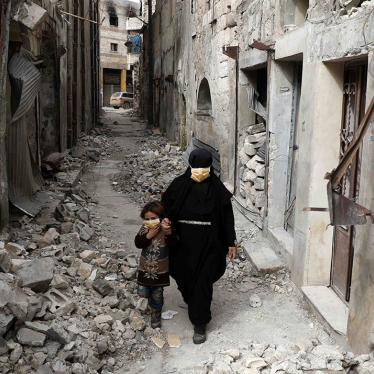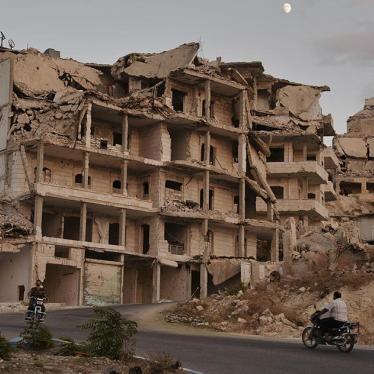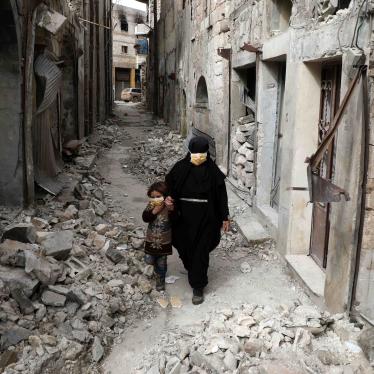When history reflects on the Syrian conflict, a defining hallmark will be the Syrian government’s deliberate targeting of civilians. Backed by Russian forces, the government has rained bombs on markets, hospitals, schools, and homes.
In 2019 and 2020, Human Rights Watch documented these atrocities to generate momentum for an end to this targeting of civilians in the last opposition-held area of Syria, Idlib governorate.
Idlib today is home to more than 3 million civilians, half displaced from elsewhere in Syria. We documented how the Syrian-Russian alliance used cluster munitions, incendiary weapons, and barrel bombs to attack and destroy civilian infrastructure, killing, in the last offensive, at least 1,600 civilians and displacing some 1.4 million. As one resident told us, they were “targeting life” in Idlib.
We urged European Union leaders to take a firmer stand on Idlib with the Russia government, using the hope of improved EU-Russia relations as leverage. We met with key stakeholders, including Angela Merkel in Germany and Emmanuel Macron in France, to encourage them to insist that Vladimir Putin stop Russian forces from contributing to the carnage. They did. We also urged officials in Turkey to open the borders to people fleeing Idlib.
These efforts helped generate pressure. In March 2020, Russia agreed to a ceasefire in Idlib that has largely held to this day, likely saving thousands of lives. Nearly a year later, civilians are living in Idlib without the daily fear of an imminent attack by warplanes.
To keep the pressure on, in October 2020 we published a major report on attacks on civilians in Idlib. Because of restricted access, we did the research without setting foot on Syrian soil. Instead, we relied on our capacity to conduct remote investigations – a capacity that we spent years building so that we could conduct research in areas too dangerous to visit or where governments block us.
We used open-source research, geospatial analysis, and witness evidence to document 46 attacks on hospitals, schools, and markets where there was no legitimate military target in the area. We also reconstructed the chain of command to identify 10 Syrian and Russian officials who may be implicated in these war crimes.
We will use our findings to maintain pressure against renewed bombing of civilians and to promote the ultimate prosecution of the officials who have been responsible for these unlawful attacks.








